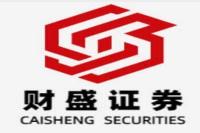Hong Kong's Tech Sector Takes a Hit: Decoding the Recent Market Dip and What it Means for Investors (Meta Description: Hong Kong, Tech Stocks, Heng Seng Tech Index, Market Volatility, Investment Strategy, Stock Market Analysis, Investment Risk, Portfolio Diversification)
Dive into the heart of the recent market turmoil impacting Hong Kong's tech sector! The headlines screamed it: another day, another drop for the Heng Seng Tech Index. But beneath the surface of those alarming percentages – the 1% plummet on December 17th, echoing a broader 0.8% decline in the Heng Seng Index – lies a complex story of global economic headwinds, regulatory uncertainties, and investor sentiment. This isn't just another market fluctuation; it's a pivotal moment demanding careful analysis and a strategic approach. Are you an investor wondering about the implications for your portfolio? Are you a seasoned market watcher curious about the underlying forces at play? This in-depth analysis offers actionable insights, providing you with the knowledge to navigate this challenging landscape. Forget dry statistics; we'll unpack the human drama behind the numbers, exploring the real-world impact on businesses, investors, and the wider Hong Kong economy. We'll equip you with the tools to make informed decisions, cutting through the noise and separating fact from fear-mongering. Prepare for a journey into the fascinating world of finance, where we uncover the whys and hows behind the recent market downturn, providing you with the clarity you need to make sensible investment choices in these uncertain times. This isn't just a report; it's a roadmap to understanding the current market climate and positioning yourself for future success. So, buckle up, and let's dive in!
Heng Seng Tech Index: A Deep Dive
The recent drop in the Heng Seng Tech Index (HSTI) isn't an isolated incident. It mirrors a global trend affecting tech stocks, influenced by factors ranging from rising interest rates and inflation to geopolitical instability. The HSTI, a benchmark index tracking the performance of leading technology companies listed in Hong Kong, has been particularly volatile in recent months. This volatility isn't merely a numbers game; it reflects real-world challenges faced by these companies. Think about it: supply chain disruptions, fluctuating energy prices, and shifting consumer demand all play a part. The December 17th drop, while significant, must be viewed within this broader context. It's crucial to remember that market corrections are a normal part of the investment cycle, but understanding the why behind the dip is key to informed decision-making. We need to look beyond the headlines and delve into the specifics.
One key factor contributing to the HSTI's decline is the lingering impact of regulatory changes in China and Hong Kong. These changes, aimed at curbing monopolistic practices and protecting consumer interests, have created uncertainty for many tech companies. This uncertainty translates directly into investor hesitancy. It's like a game of poker; when the rules are unclear, players become cautious, leading to less aggressive betting – or in this case, investment. Furthermore, global macroeconomic factors, such as rising interest rates and inflation, have dampened investor appetite for riskier assets, including tech stocks. This global slowdown further exacerbates the situation in Hong Kong. The interconnectedness of global markets often means that regional struggles don't remain localized; they ripple outwards, impacting seemingly unrelated sectors.
Understanding the Impact on Businesses
The drop in the HSTI has tangible consequences for the businesses listed on the index. Reduced investor confidence can lead to decreased funding opportunities, making it harder for companies to expand, innovate, and compete. Moreover, a falling stock price can affect employee morale and retention, impacting productivity and overall performance. It's a domino effect: market downturn leads to tighter budgets, impacting employee compensation and benefits, eventually affecting overall performance. This is why it’s more than just numbers on a screen; it’s about real people and real livelihoods. Companies are forced to re-evaluate strategies, potentially leading to layoffs or restructuring. This isn't just theoretical; we've seen similar scenarios unfold in previous market corrections.
Navigating the Volatility: Strategies for Investors
So, what should investors do? Panic selling is rarely the answer. A measured approach is crucial, focusing on diversification and long-term investment strategies. Instead of reacting emotionally, investors should re-evaluate their risk tolerance and asset allocation. Perhaps it's time to reassess your portfolio's diversification strategy. Do you have enough exposure to other asset classes to mitigate the impact of a downturn in the tech sector? Diversifying your investment portfolio is a cornerstone of successful long-term investing.
A well-diversified portfolio typically includes a mix of asset classes such as stocks, bonds, real estate, and alternative investments. This approach helps to reduce the overall risk of your portfolio, as the performance of different asset classes may not always move in the same direction. Consider consulting a financial advisor for personalized guidance tailored to your specific financial goals and risk tolerance. Don't feel like you have to go it alone!
| Investment Strategy | Risk Level | Potential Return |
|---|---|---|
| Long-term holding of blue-chip tech stocks | Moderate | Moderate to High |
| Short-term trading of tech stocks | High | High (potentially), but also high risk of loss |
| Diversification across asset classes | Low to Moderate | Moderate |
| Index funds focused on the HSTI | Moderate | Moderate (mirrors the index's performance)|
The Road Ahead: Future Outlook and Predictions
Predicting the future of the market is, of course, impossible. However, by analyzing current trends and historical data, we can formulate educated estimations. Several factors will likely influence the HSTI's performance in the coming months. These include the continued impact of regulatory changes, global economic conditions, and investor sentiment. While the short-term outlook may remain uncertain, the long-term prospects for the Hong Kong tech sector remain relatively positive, considering the region's innovative spirit and access to a massive consumer market. However, this doesn't mean blindly investing; careful monitoring and adaptation are crucial.
Remember, patience and discipline are essential attributes of successful investing. Don't let short-term market fluctuations derail your long-term financial goals. Stay informed, adapt your strategy as needed, and consult with financial professionals for personalized guidance. It’s a marathon, not a sprint!
Frequently Asked Questions (FAQ)
Q1: Is this market dip a sign of a larger crash?
A1: While the recent drop is concerning, it's premature to label it a sign of a larger crash. Market corrections are normal, and this could be a temporary adjustment rather than a prolonged bear market. However, careful monitoring is crucial.
Q2: Should I sell my tech stocks now?
A2: The decision to sell depends on your individual risk tolerance and investment goals. If you're a long-term investor with a high risk tolerance, you might consider holding onto your investments. However, if you're nearing retirement or have a low risk tolerance, you might consider diversifying your portfolio.
Q3: What are the key risks associated with investing in the HSTI?
A3: Key risks include regulatory uncertainty, macroeconomic factors like inflation and interest rates, geopolitical instability, and company-specific risks. Diversification and thorough due diligence are essential.
Q4: Are there any promising sectors within the Hong Kong tech market?
A4: While the overall market has experienced a downturn, certain sub-sectors, such as fintech and healthcare technology, might offer promising opportunities. However, thorough research is necessary before investing.
Q5: How can I protect my portfolio during market volatility?
A5: Diversification is key, along with a long-term investment strategy. Consider hedging strategies and consulting with a financial advisor for personalized advice.
Q6: What should I do if I'm worried about my investments?
A6: Don't panic! Review your investment strategy, consider your risk tolerance, and seek professional advice. Avoid making impulsive decisions based on fear.
Conclusion
The recent dip in the Heng Seng Tech Index underscores the inherent volatility in the market. While the short-term outlook may seem uncertain, a long-term perspective and a well-diversified portfolio can help mitigate risks and capitalize on future opportunities. Remember, informed decision-making, based on thorough research and professional guidance, is your best defense against market uncertainty. Stay informed, stay disciplined, and stay invested – wisely.



